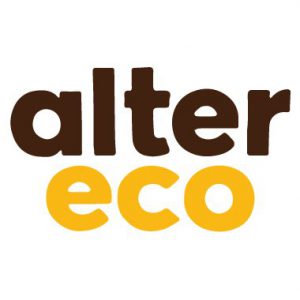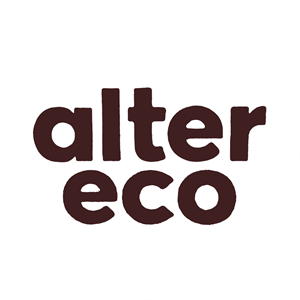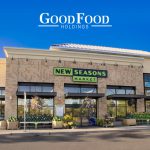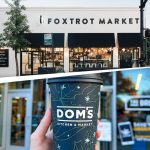Alter Eco Launches New Charitable Arm, the Alter Eco Foundation

According to data from the Environmental Protection Agency (EPA), 24 percent of global greenhouse gas emissions can be attributed to agriculture and forestry. If our current conventional agricultural practices don’t change soon, the UN also estimates that most healthy soil will disappear within 60 years. Dynamic agroforestry is a method of regenerative, climate-positive farming that integrates diverse crops into monoculture, or single-crop, systems. Some of the many benefits include improving natural biodiversity and soil health, drawing carbon from the atmosphere, strengthening cacao health, improving farmer working conditions, and creating additional revenue streams for farmers from the various crops planted with the cacao. Research has shown that this method of sustainable farming can have a significant impact on reversing global soil degradation caused by monocultures, chemical use, and global climate change.
Four hundred of the 1,800 farmers Alter Eco sources cacao from in Ecuador have already transitioned some of their parcels to the dynamic agroforestry model. With $1.5 million committed over the next five years, the Alter Eco Foundation will help transition cacao farmers in its supply chain and beyond – starting with the remaining 1,400 in Ecuador – while driving awareness and education about the practice globally.
“You cannot reduce greenhouse gasses and mitigate climate change without addressing soil health through better farming practices. These are the foundations for long-term solutions that have real impact,” said Mike Forbes, CEO at Alter Eco. “Our specially-farmed cacao is estimated to increase carbon sequestration by 83 metric tons of CO2 per acre over 20 years*, compared to conventionally-grown monoculture cacao. At scale, if the global cocoa industry transitioned its approximately 30 million acres to our dynamic agroforestry model, about 2.5 gigatons of CO2 would be sequestered from the atmosphere over 20 years.** That’s why the work we’re doing with the Alter Eco Foundation is more essential than ever to improve the health of the planet long-term. We have to make the benefits of regenerative agriculture, and the best practices we’ve honed using this method, accessible for global adoption in the cacao industry and beyond.”
Alter Eco currently sources 41 percent of its cacao beans from the UNOCACE cooperative in Ecuador, which is committed to transitioning 100 percent of its farmers and land to regenerative methods. In 2015, 400 of its 1,800 farmers began the five-year process of transitioning some of their five to seven acre parcels of land from monoculture, or single-crop farming, to dynamic agroforestry. This transforms manmade cacao fields into a more biodiverse, natural, and self-sustaining cacao forest with up to 15 species of plants in each acre, which reduces water and fertilizer use, and increases carbon sequestration.
“When visiting our co-ops in Ecuador last year, I saw some farmers setting up drip lines to irrigate their crops,” Forbes said. “Ecuador’s natural environment is a rainforest, so that type of irrigation should not be necessary to grow food. To me, this was a clear sign that the conventional farming methods used to grow our food are broken and it’s going to take a systematic approach to repair it.”
To learn more about Alter Eco, the Foundation, and dynamic agroforestry, please visit www.alterecofoods.com.
About Alter Eco
Alter Eco® is a chocolate-centric food company that helps mitigate climate change through regenerative agriculture and carbon sequestration. Recognized as a top certified Benefit Corporation, a registered Public Benefit Corporation and proudly listed as one of the ‘Best & Brightest’ places to work in 2019, Alter Eco is dedicated to pioneering a better way of doing business as a force for change. The company practices a full-circle approach to sustainability throughout its operations and supply chain through four pillars: sourcing using Fair Trade principles, producing only organic and non-GMO foods with regenerative farming practices, creating minimal waste by working towards 100 percent compostable packaging, and in-setting carbon emissions by means of large-scale reforestation/conservation programs in the cooperatives that produce its crops. These principals are entwined with Alter Eco’s commitment to the highest quality ingredients and taste in all of its products, available in North America, Australia and Canada. All Alter Eco products are USDA Certified Organic, Fair Trade Certified, Climate Neutral Certified, non-GMO and Certified Gluten Free (excluding Dark Salt & Malt). For more information about Alter Eco, please visit www.alterecofoods.com.
*Environmental Research –“Cocoa Agroforestry Systems Vs. Monocultures: A Multi-Dimensional Meta-Analysis”














